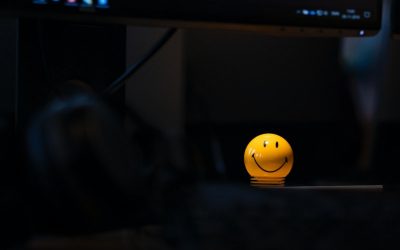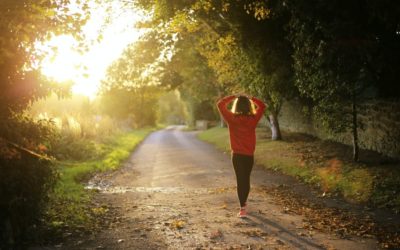by Dr Sam Tan (Wee Hong), Senior Clinical Psychologist
Dr Jane Goodall, the primatologist sat in the forest occasionally writing into her small notebook. She would look up from her writing and peer through her binoculars at the scene that unfolded in front of her eyes. Without a rifle to protect her against the great chimpanzees, she was a risk of being harmed, but nonetheless she sat quietly and observed them as they went about their business.
She was at that time an untrained person, with scarcely any footing in the scientific community and yet she had been sent to observe the animals that would bring her and National Geographic great acclaim. It was through her willingness to be present and to immerse herself into the communities of the great apes; it was through her quiet observation and trying not to interfere with the machinations of what unfolded before her eyes that she came to understand the Chimpanzees like no one did before her.
Dr. Goodall realized that they were intelligent creatures capable of experiencing emotions, of forming connections and acts of kindness. They could be cruel just as humans could be and most of all they could create tools to suit their needs. How could she, this untrained young lady change the scientific world and challenge the boundaries of what it meant to be a human and what it meant to be a primate?
It boiled down to a few essential things:
- Her willingness and courage to be with the great apes
- A willingness to let go of her defenses (i.e., her gun)
- Her quiet and patient observation of the apes
- Setting aside pre-conceptions of what should be or should not be
- Allowing the apes to act as they would despite disliking some of their behaviours (e.g., violence and cruelty) and liking other types of behaviours (e.g., kindness, humour and connection with one another).
In many ways Jane Goodall’s action of deliberate watching of the apes and allowing for all their behaviours, good and bad, epitomizes what it means to be mindful. Supposing then that we were to treat our emotions and our thoughts like the great chimpanzees that roamed the reserves of Tanzania freely and that we in turn play the role of Jane Goodall, the respectful and curious primatologist, we would then be practicing mindfulness.
What would observing the chimps or for that matter observing my emotions and thoughts do? You might ask. The question motivated very much by the hope to alleviate our emotional anguish and perhaps strive for happiness. The short answer to this complex question is that observing anything changes both the observed and the observer very much like what happened to Jane Goodall.
Even as she set out to observe her Chimps without the intention of changing them, both she and them changed. Initially, they kept their distance and she experienced uncertainty and fear. As she persisted, they took to shows of anger and ferocity to scare off the “intruder”. Yet as she remained despite the threats, they warmed up to her and slowly engulfed her into their midst such that they would play with her and allow her to touch them. As an observer, a whole new experience and change in perception about the apes emerged and she came to love them like her own family.
So as we sit and patiently observe our emotions and thoughts as they frolic in our minds, we mellow to them and they in turn yield important information about ourselves, others and the world to us. This information that arises then adds onto our usual logical analytical thinking to enrich our decisions and ultimately enhance our lives.
People who spend time listening in to their emotions and thoughts, and tolerating how messy and disturbing they can feel would often experience:
- Increase clarity about the emotions they are experiencing
- The situation that evoked the emotions and thoughts
- Increasing sense of what they need to manage the situation and/or the emotion
- Having a sense of what steps would be appropriate for them to take to meet these needs



